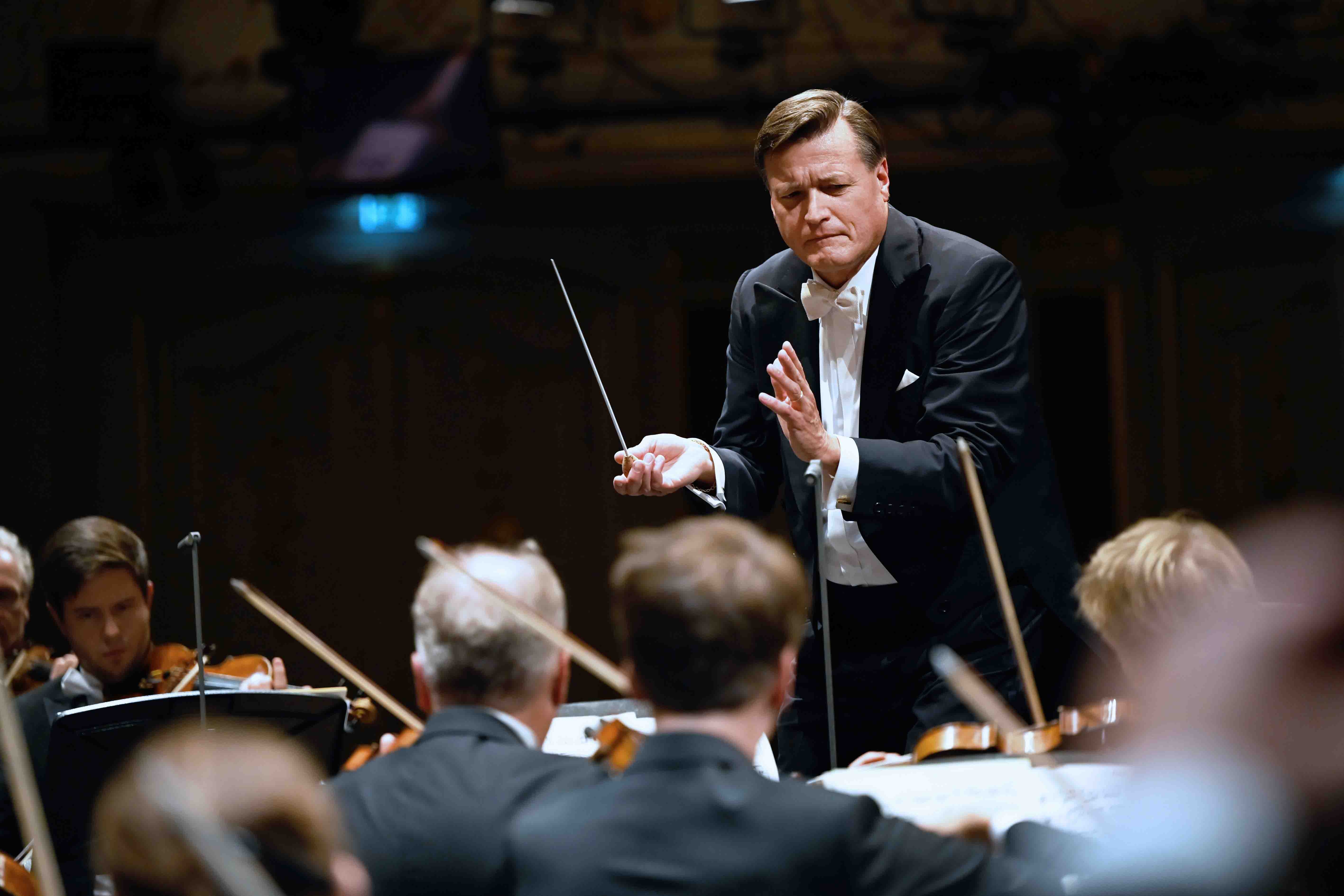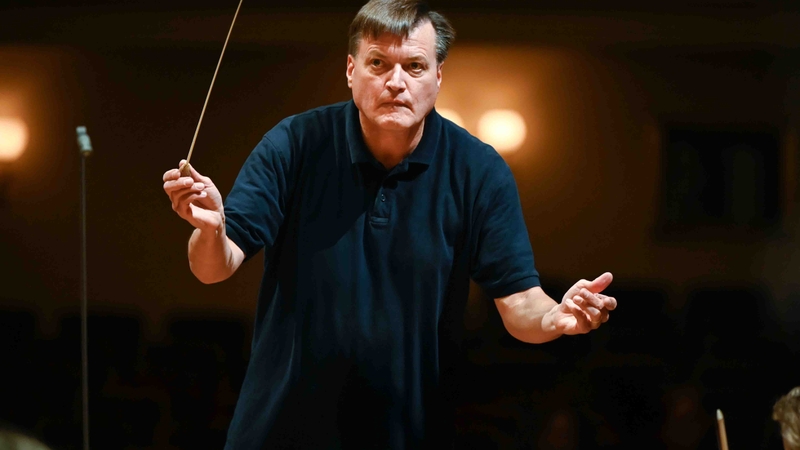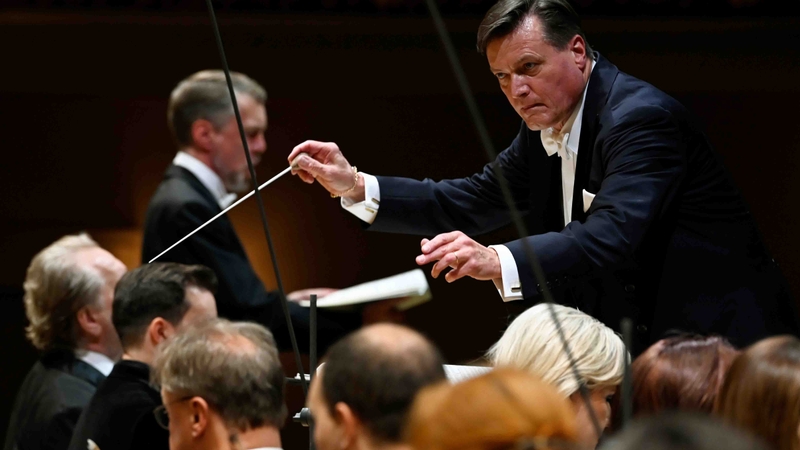Bubble bath in a minor key
Interview |

Only a few manage to become a legend in their own lifetime. He certainly is: Christian Thielemann. The mere mention of his name ensures sold-out houses; when he steps up to the podium, music lovers always expect a celebration. What began at the Vienna State Opera with a performance of Così fan tutte in 1987 has become a great artistic friendship, indeed partnership. Premieres and revivals, but also repertoire evenings. In 2023, Christian Thielemann finally received the highest honor the Vienna State Opera can bestow: honorary membership. In December, he conducts Hans Pfitzner's opera Palestrina.
Initially, people criticised the composer Hans Pfitzner for being “modernist”, later he was frequently labelled conservative. What was he in fact? How would you describe Pfitzner in a few sentences for an opera newbie?
I find him harmonically far superior to Richard Strauss – with the exception of works such as Elektra or some passages in Die Frau ohne Schatten. In general, Pfitzner’s entire musical language is much more austere, less facile. This is also due to his choice of subjects: he never set a Rosenkavalier to music; he never went in that direction. What both Pfitzner and Strauss have in common is an incredible feeling for the theatre.
And how would you summarise Palestrina? The work has many facets, from an artist’s struggle all the way to comedy, as seen in some passages in act 2.
Palestrina is a drama about an artist. And it is a piece brimming with contrasts. In act 1 we experience Palestrina’s self-doubt, the apparitions of the old music masters, this tremendous scene where Mass is sung – almost Wagnerian in proportions! In act 2 there is also, as you say, caricature; it is at times almost preposterous, slapstick! Then it becomes violent, there is shooting, there is torture... welcome to real life! Act 3 tries to create a synthesis from all this, the mood is again closer to act 1, and the opera ends on a very melancholy note. Palestrina was ultimately forced to find inspiration – and here I see something timeless and relevant. After all, how often do politicians try to co-opt artists! Palestrina is always a warning to me: do not do that, stay independent!
The caricature nature of act 2 also gives us precise portraits of the characters...
Like Wagner and Richard Strauss, Pfitzner also had an incredible gift for characterising people – which he dressed up with a dose of caustic humour. The way he handles the transformation of the influential Cardinal Carlo Borromeo, for example – from purring petitioner determined to win Palestrina over as composer of a decisive Mass to absolute monster who exerts his power – it is simply brilliant! The same applies to the portrayal of the Cardinal Legate Novagerio as an influential bully spitting vicious remarks or the Bishop of Budoja, who sees the Council as a welcome opportunity to indulge in life’s pleasures at someone else’s expense, or the young theologian who is only worried about his daily diet. Even the passion for grandeur of Hapsburg Emperor Ferdinand I, although he is not actually present, is caricatured by a deliberately simple and pompous leitmotif. Pfitzner assigns each person in the orbit of the Council of Trent a very specific, unmistakable personality and at the same time gives them what is coming to them; everything is subjected to ruthless critique dripping with irony.
Palestrina was first performed at the Vienna State Opera in 1919 – in the staging of the composer. A number of productions followed, but none of them were performed very often. His other operas were also performed at the house on the Ring, but gradually disappeared from the repertoire. Why is that? Why is Palestrina so rarely performed?
One factor is the structure of the music. If you know the work well and follow it attentively, you will find it very melodic. But if you don’t have this detailed knowledge, and that is often the case with Pfitzner’s works, the music is difficult for some people. But this is also the case with the later works of Strauss – for example Capriccio. A lot of the music is very catchy; the opening with Ighino almost makes you want to sing along! And Borromeo’s entrance is incredibly exciting! The visionary scene with the music masters is unbelievably good! But the audience has to stay focused. Palestrina is not a piece that you can listen to with half an ear. It is not Carmen or La bohème or even Lohengrin...
»Of course, everyone knows from their own experience that some big questions leave you all alone. It's no use being in good company and getting on well with lots of people.«
Pfitzner’s composer colleague Arthur Honegger spoke of the “musical superiority” of Palestrina. Is that what makes the work challenging?
There is a wonderful story about a meeting between Pfitzner and Strauss. Pfitzner was complaining about the problems he was experiencing composing act 2 of Palestrina, and Strauss answered laconically: “why are you composing it then if it’s so difficult for you?” This very neatly illustrates Pfitzner’s approach. In his pondering and wrangling, he felt very important and significant. But Strauss, with his strong theatrical instinct and subjects, gained something that ultimately eluded Pfitzner: great popularity. Pfitzner also clung to a concept of genius that was already somewhat tarnished at the time, namely that inspiration and genius must come as it were from heaven. Just think of what Strauss said in 1915 – he was already over 50 years old! – at the première of his Alpensinfonie: “I’ve finally learned how to orchestrate a piece!” Pfitzner would never have said something like that!
John Steinbeck is said to have commented that everyone is lonely at the moment of creativity. In act 1, Palestrina goes even further than this with his comment that “at its core, the world is loneliness.” Not a very optimistic view of the world, is it?
Of course, everyone knows from their own experience that you are completely alone with certain major questions. It doesn’t help having company and getting on well with a lot of people. Friends and relatives can at best give advice, but the final decision must be made by the individual him or herself. That’s what Palestrina, or rather Pfitzner, means here. I once did this piece with Peter Schreier, who at the time emphatically confirmed that he could understand this comment by Palestrina very well and that he had also experienced similar depression – as he called it. To which I replied that I did not want to conduct the work out of a sense of depression, but wanted to preserve the complexity of this opera.
How wonderful the remark is “in you, Pierluigi, the brightest light still shines” in the scene where the old masters appear and Lucrezia’s “I am near you in the light of peace” or the magnificent Rome-theme at the end: Pfitzner clearly gave into his weak- ness here! What a contrast to act 1 this Meistersinger-like, lively, comedic act 2 and the final conciliatory act 3 are. To be sure, at the end, sitting at the organ Palestrina, asks himself, as mentioned pensively and justifiably, whether he was intimidated and forced to compose the Mass or whether it was the product of artistic inspiration. From the musical standpoint, Pfitzner leaves the question unanswered; finally, here he takes up motifs from the first prelude again. However, Palestrina’s answer to his son Ighino’s question as to whether he is happy is interesting. What he says is: “but, my child, you see I’m no longer young, I take delight in life less boisterously.” Even if less boisterously, Palestrina is clearly pleased, so he is somehow happy. And that really doesn’t convey anything pessimistic.
In the scene mentioned above where the masters appear, the remark is made that “one last note is still missing from the sonorous chord”, letting Palestrina know that his “earthly work is not yet done”, in other words, he still has a work to do. But doesn’t that mean, if you pursue that thought, that at some point an artist has said everything he had to say?
Bruckner was certainly so tired at the end of his life that he would not have succeeded in writing the finale of his ninth symphony, where he had set himself the task of combining all the themes. But leaving aside physical ailments or death: who knows what else Mozart would have come up with, for example. Or Schubert, or Wagner, etc. No, I think that Pfitzner simply identified to a certain extent with Palestrina, the artist struggling to create a great work, and put an ideal image of himself on stage.
As a young man, Pfitzner was considered a high-flyer, similar to Korngold. At first, Pfitzner was even more respected than Richard Strauss, who was five years older; his great first opera, Der arme Heinrich, which premièred in Mainz, reveals the work of a truly outstanding composer. But by the time he wrote Salome and Rosenkavalier, the race had been decided in Strauss’s favour. In addition, Pfitzner was not a sympathetic figure in principle – you only have to look at the photos of him sitting deep in thought at the piano. He was stubborn about his views and ideals, and, as I said, unlike Strauss, he never wanted to let things slide, and his writing often comes across as almost dictatorial. He was also a poor networker and was unable to gain a foothold anywhere in later years. I also believe that his antisemitic attacks on Schoenberg and those against twelve- tone music, for example, were probably fed by this frustration.
Is there an artistic truth? Should the Mass in this opera be a symbol of an artistic truth of a certain time?
No, no, I don’t see that at all, especially since I myself don’t believe in truth in art. When I stand on the podium to conduct Palestrina, you expect a personally coloured interpretation from me – and that’s what you’ll get. But truth? I listened to my own Palestrina recording from 1997 and now find it too slow in parts, so I’ve moved on and am no longer convinced by my previous interpretation. A work of art can never claim to be true.

